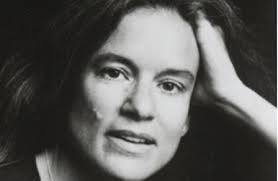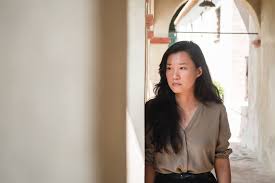
If you’re old enough to remember the 50s or 60s, Philip Larkin, with his bald head and Coke-bottle glasses, looks a lot like your typical middle-class pharmacist. Or businessman. Or what bespectacled vanilla have you.
His poetry, depressing as Hades, might not be a place to wander during a pandemic, but it does offer insights into our ever shifting love-hate relationship with work. Remember that? Working 9 to 5, I mean?
Many people who railed against work now are taking it all back for a chance to return. And while that day will come once sacrifices for the common good are seen through, it may not be the same for many of us for, like the Bubonic Plague, this pandemic may rearrange the social game board permanently. This could be good news or very, very bad news. It depends on where it all lands.
Let us turn, though, to the word “toad.” It sounds so sluggish and repugnant. A perfect metaphor for work. Larkin wrote two poems about the warty little guys: “Toads” in his collection The Less Deceived, and “Toads Revisited” in The Whitsun Weddings.
In the first stanza of the earlier poem, Larkin wastes no time in serving up that wonderful metaphor: Toad = Work that squats on our life. I imagine most everyone can identify with that, the working day in and day out for all your years until it is time to die and cry, “For what?”
Bummer, yes? Depressing, no?
In the second poem, the speaker walks in a British park on a day off and finds the people who are NOT working to be “stupid or weak.” He looks down on these people. Thus do we get working, the toad that squats on us, and not working, an equally repugnant creature that wallows in the mud of boredom and listlessness. Thus does work come off a little better than previously presented.
Thus, too, do clichés like “you can’t win for losing” and “the grass is always greener” come into being. For Larkin, happiness finds a way to frown no matter what the conditions.
At the risk of warts on our hands, let’s look at the poems side by side:
Toads
Philip Larkin
Why should I let the toad work
Squat on my life?
Can’t I use my wit as a pitchfork
And drive the brute off?
Six days of the week it soils
With its sickening poison –
Just for paying a few bills!
That’s out of proportion.
Lots of folk live on their wits:
Lecturers, lispers,
Losels, loblolly-men, louts-
They don’t end as paupers;
Lots of folk live up lanes
With fires in a bucket,
Eat windfalls and tinned sardines-
they seem to like it.
Their nippers have got bare feet,
Their unspeakable wives
Are skinny as whippets – and yet
No one actually starves.
Ah, were I courageous enough
To shout Stuff your pension!
But I know, all too well, that’s the stuff
That dreams are made on:
For something sufficiently toad-like
Squats in me, too;
Its hunkers are heavy as hard luck,
And cold as snow,
And will never allow me to blarney
My way of getting
The fame and the girl and the money
All at one sitting.
I don’t say, one bodies the other
One’s spiritual truth;
But I do say it’s hard to lose either,
When you have both.
Toads Revisited
Philip Larkin
Walking around in the park
Should feel better than work:
The lake, the sunshine,
The grass to lie on,
Blurred playground noises
Beyond black-stockinged nurses –
Not a bad place to be.
Yet it doesn’t suit me.
Being one of the men
You meet of an afternoon:
Palsied old step-takers,
Hare-eyed clerks with the jitters,
Waxed-fleshed out-patients
Still vague from accidents,
And characters in long coats
Deep in the litter-baskets –
All dodging the toad work
By being stupid or weak.
Think of being them!
Hearing the hours chime,
Watching the bread delivered,
The sun by clouds covered,
The children going home;
Think of being them,
Turning over their failures
By some bed of lobelias,
Nowhere to go but indoors,
Nor friends but empty chairs –
No, give me my in-tray,
My loaf-haired secretary,
My shall-I-keep-the-call-in-Sir:
What else can I answer,
When the lights come on at four
At the end of another year?
Give me your arm, old toad;
Help me down Cemetery Road.
It’s as if the narrator has left marriage therapy more happy with his betrothed toad. No longer is it squatting on him. Now it is arm and arm with him, prepared to disappear with him arm in arm until death do they part.
I say “more happy,” but really, only by dint of the alternative. Wasting your life in a job that consumes your years like toads consume flies may be depressing, but Larkin has come back to say that it might just be better company en route to the cemetery of life than nothing at all.
Being out of work and home with the kiddies (a breed Larkin had little regard for) so long might offer a new angle on the reviled toad.
Or not.
Still, good poetry’s good poetry, and they’re fun to read together.

